I always hesitate to create a “worst” movies of the year list as films are generally so difficult to make that it is a wonder any ever get completed, and the achievements of artists who have, with passion, purpose and good intentions, poured everything they have into realizing any film should be applauded.
This year, five filmmakers I deeply respect made pictures that fell short. While it gives me no pleasure to share my negative perspectives on these works, perhaps every filmmaker has an off-day and fair enough play to consider why their works (many of them high-profile and, in some corners, lauded) this year did not fully connect.
The Whale
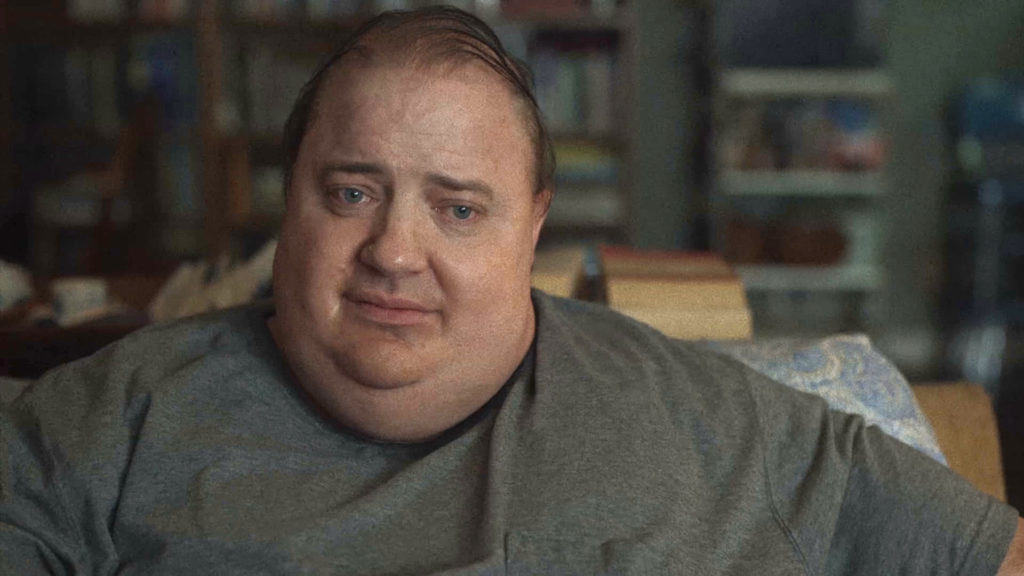
A belly flop into performative misery, Darren Aronofsky’s The Whale starred Brendan Fraser as a shut-in, 600-pound gay college professor who feels so sorry for himself that the movie equates to a two-hour pity party you don’t want to attend. Forlorn, food obsessed, unable to walk and attempting to reconnect with the daughter (Sadie Sink as a truly off-putting, poisonous character) he abandoned years prior, Charlie (Fraser) is as unappealing as movie characters come, with little desire for growth or change (though the film tries to hard sell otherwise), marking time and waiting to die. Obesity prosthetics dominate this show, which strangely encourage us to gawk at Charlie’s misfortunes, antithetical to Aronofsky and Fraser attempting to create empathy. As a caring healthcare worker, a sincere Hong Chau does her best to punch through the treacle.
Bardo: False Chronicle of a Handful of Truths
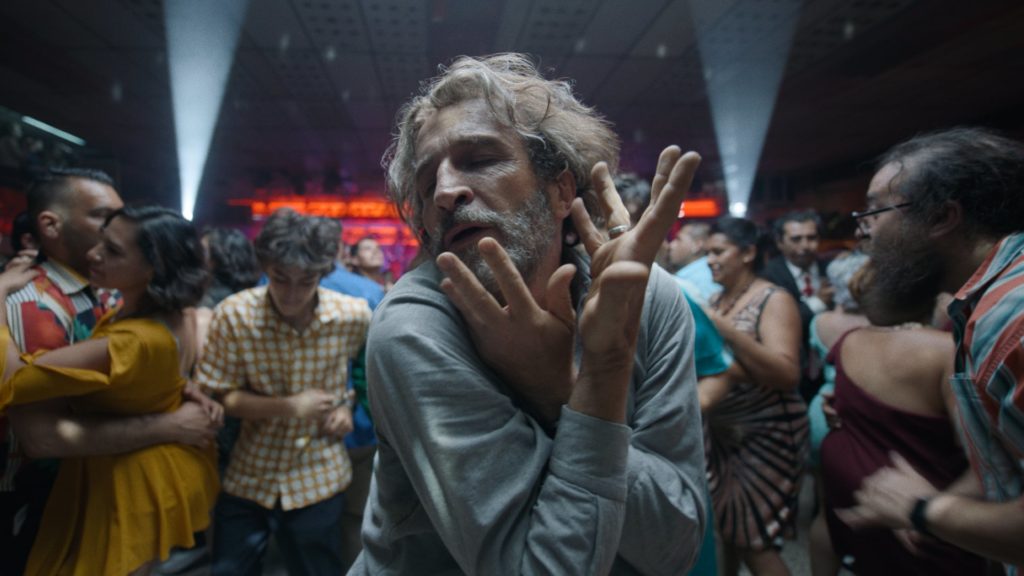
When a filmmaker as talented as two-time Oscar winner Alejandro González Iñárritu takes a detour so arch and misguided — fancying himself as Fellini in a would-be modern-day take on 8 1/2 — it is difficult to grasp where it all went so wrong. Fantasy, illusion, reality, dreams and the kitchen sink all converge in Iñárritu’s self-referential (read: self-aggrandizing), existentialist look at his own success and identity crisis, personal and cultural, through the eyes of a Mexican journalist and documentarian (Daniel Jimenez-Cacho) attempting to reconcile it all in a 160-minute overdose of pretension. Minus a single compelling scene (but many groan-worthy ones, including a confrontation between the filmmaker’s protagonist surrogate and the conquistador Hernán Cortés, waxing philosophically above a pile of nude corpses), Bardo: False Chronicle of a Handful of Truths obviously means something for Iñárritu, but he’s made nothing compelling for the audience in a bloated, pseudo-epic sans insights.
Women Talking
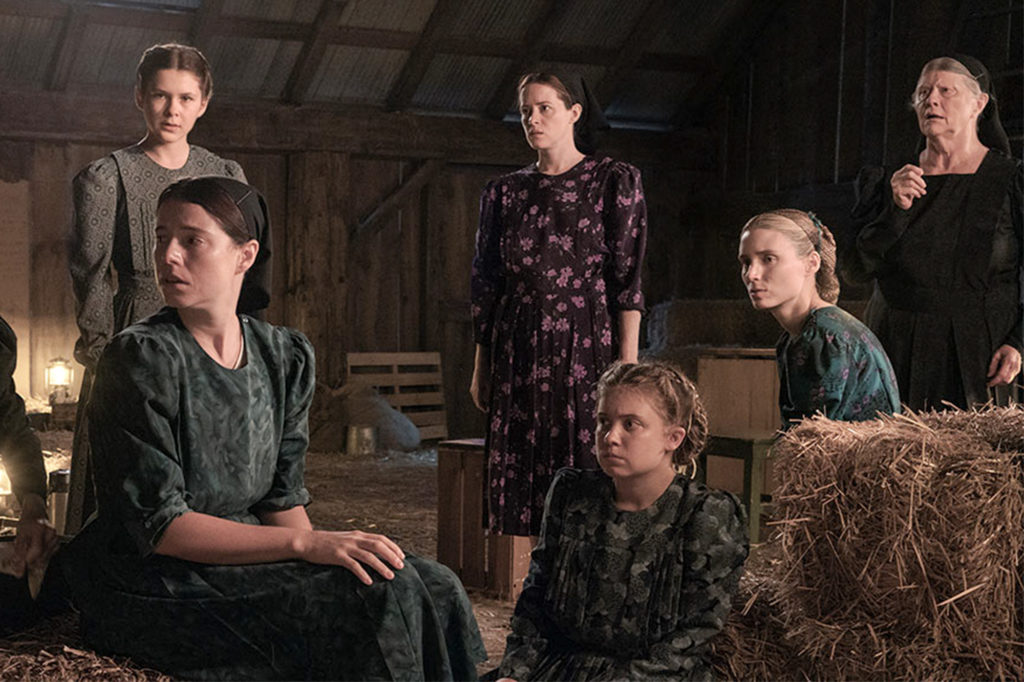
Sarah Polley’s anemic polemic about 8 Mennonite women secretly convening in a hayloft upon discovering they’ve been drugged and sexually abused by the sect’s male members, was a limp, static and, courtesy of its desaturated in extremis color palette (a shade above black and white), unappealing to watch. Important subject matter given a wan treatment and lacking dramatic tension despite solid work from Jesse Buckley as the ensemble’s best in show. Perhaps the tale, based on a real-life story from South America, is somehow contextualized in the #MeToo movement and thereby granted a degree of cultural zeitgeist, but as a moviegoing experience it is aridly uninvolving.
Empire of Light
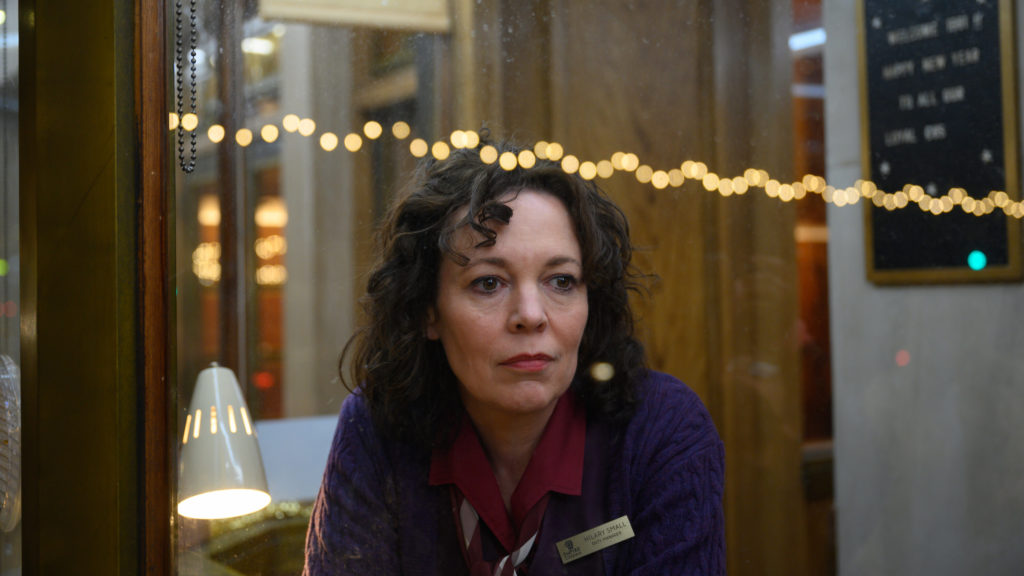
Raising a number of serious issues—schizophrenia, racial brutality, May-December romances and the transformational power of cinema (and movie houses)—writer-director Sam Mendes, bizarrely, had nothing to say about any of them, using each merely as convenient plot devices in a curiously unengaging film. Set on England’s south coast circa 1980, Olivia Colman is a mentally ill movie theater worker who begins an unbelievable affair with a new, much younger colleague (Michael Ward). Both characters, and actors, are in search of a better movie and narrative; this one is tonally all over the map and cannot figure out which story it wishes to tell, shortchanging its talented stars.
Men

Alex Garland, the genius-level writer and director who gave us the terrific Ex-Machina and Annihilation, missed the mark in this year’s Men, starring Jessie Buckley as a traumatized Londoner on a countryside sojourn to recuperate. She will be intimidated, harassed and stalked by a handful of threatening men (each played by Rory Kinnear in distracting stunt casting). Garland ultimately proves less interested in his feminine enigma than in a very heavy dose of the conceptual. For Garland there may be a thematic point to Men, but his protagonist gets lost in its pursuit; the picture is symbolic, sometimes heavy-handed, often oblique and less interesting as it plods, mostly due to its relentless focus on having Something Important to Say about male aggression.
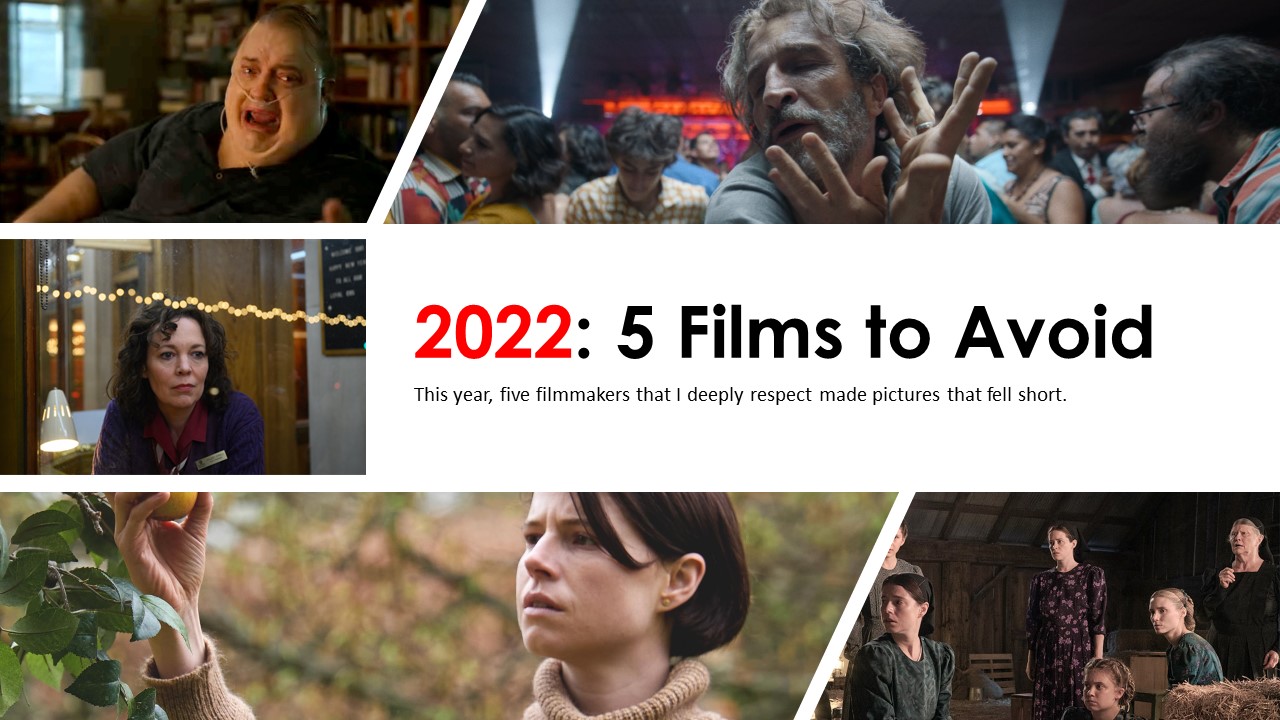
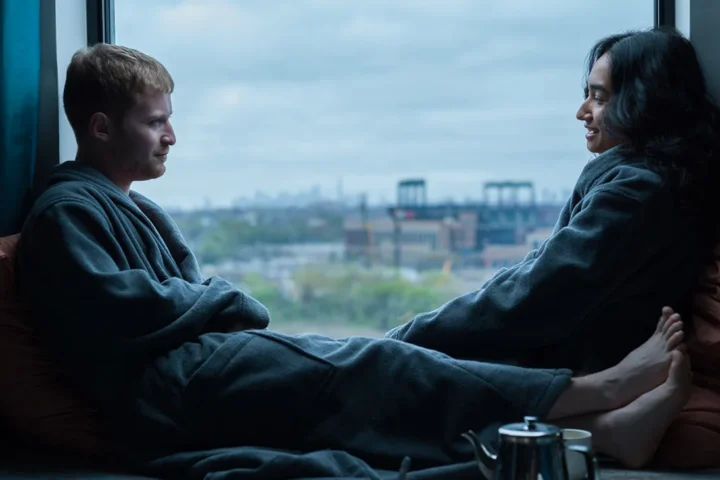

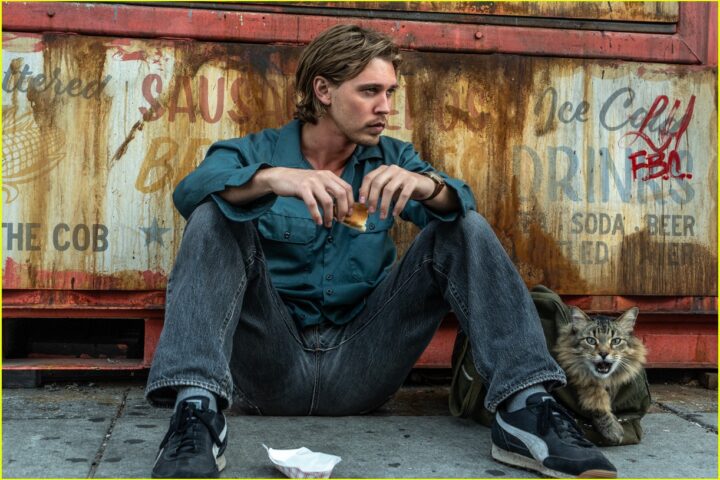
Had the polar opposite view of “Women Talking.” As theatrical/novelistic as it is in its dialogue, Polley created a vivid world with limited settings and the acting is just top-notch. I found it emotional and real, despite the very “written” dialogue.
And you’re way too hard on “Empire of Light.” Has its flaws, for sure, but I found it really moving. A lesser but nice companion piece to “Armageddon Time.” It certainly nails the “Cinema Paradiso” finale better than that god-awful montage in “Babylon.” Should have ended there, though, with Toby Jones in the projection booth. I’m not a big Sam Mendes’ fan, but this is my favorite “non-Bond” film of his to date (though I haven’t seen “Away We Go.”
I’m on the same page as you with “Men,” though. Big disappointment. Of 3 films I saw that you could call “MeToo horror,” it was the weakest. I liked “Barbarian,” but “Watcher” (the feature, not the Ryan Murphy series) rose high above both.
Hey Joel!
Fair enough on Women Talking; I found the subject matter intriguing but the treatment both monotonous and visually unappealing; I also did not like Ben Whishaw’s performance, which was a hand very overplayed in the final moments.
Empire of Light, however nice looking courtesy of Roger Deakins, was, for me, a letdown (and I’m an admirer of everything Mendes has done). At the 63-minute point I realized there was little dramatic tension and nary an interesting scene. On the conclusion, I did not find Olivia Colman’s (whom I love) emoting to Peter Sellars in Being There affecting. Overall, I found the film to be remote and unengaging, as well as uncommitted. I did not believe the central relationship for a minute (it was written, not real) and the only substantive merit I detected in the film was the idea of courage — being there for a friend in trouble, whether it’s while the police break down an apartment door or at a hospital bedside. Surprisingly, the film uses schizophrenia as a plot device, as it does racial brutality — both too serious of subjects to be casually tossed off as incidental.
I found Barbarian to be about 45 minutes of a good film before it shifted gears and the tension dissipated. As thrillers go, I much preferred Watcher, Resurrection and even smile.
I don’t understand why you are recommending avoidance of these films. I’ve not seen The Whale, but I will, and if I find I feel it doesn’t fully connect I will first consider that I might have missed something. Not that the film is flawed. One must be humble in a one way conversation.
Hello F. James, thanks. As a critic, I consider myself generous in a profession where many others require films to scale very high criteria, approach films with skepticism and routinely dismiss works of quality on personal bias. I always approach any film from any genre with Roger Ebert’s criteria: “What is it trying to do, and how well did it do so?” Please see my intro to this piece where I explain that I admire and respect each of the filmmakers on this list, and found these films to be off-days for them while still acknowledging that the films have been admired in other places. In terms of recommending avoiding them, most critics make “best of the year” and “worst of the year” lists. I do not like to call films “worst of the year” as no one sets out to make something bad. In my introduction to the piece I note respect for artists and the work that goes into realizing their visions even if those visions fall short. To your comment about The Whale, which many have approved of out of compassion (in my view), there have been many others like myself who have felt it to be an exploitative horror show with little merit or artistic distinction — a piece was written about this in The New York Times the week it was released. In terms of being humble, if you read or follow me at all, you will find the vast majority of my perspectives to be supportive, positive and rooted in love of film and artists; I do not lead with hubris or focus on the negative; I always find merit. Thanks again for your comment.
Fair reviews but I would also include White Noise and The Menu to this list. Both very disappointing films with contrived, derivative plots. 140 million for a confusing, pointless vanity project like WN, nuts? And The Cook, The Thief, His Wife and Her Lover is what The Menu wishes it could be. It needed class. It needed an English director and writer who understands class.
Hi Dan, I would tend to agree with you on White Noise, which I did not formally review but would consider a massive overreach and odd entry in Noam Baumbach’s canon, right? Quite the stories coming out of the production on that one, which you may have read last week when some of the onset tales were revealed. On The Menu, I was delighted by it and thought it was sharply made, but satires land differently for all of us, I believe. I am a huge, huge fan of Peter Greenaway and The Cook, The Thief, His Wife and Her Lover. I’ve seen the picture many times and remember when it was first released, catching it during my college years and thinking it was about the most stylish, radical and smart film I’d seen during the time. I’ve returned to it over the years and genuinely adore it. Sacha Vierny’s cinematography is simply magnificent as is Michael Nyman’s score (and the entire production, for that matter). Thanks for this comment!